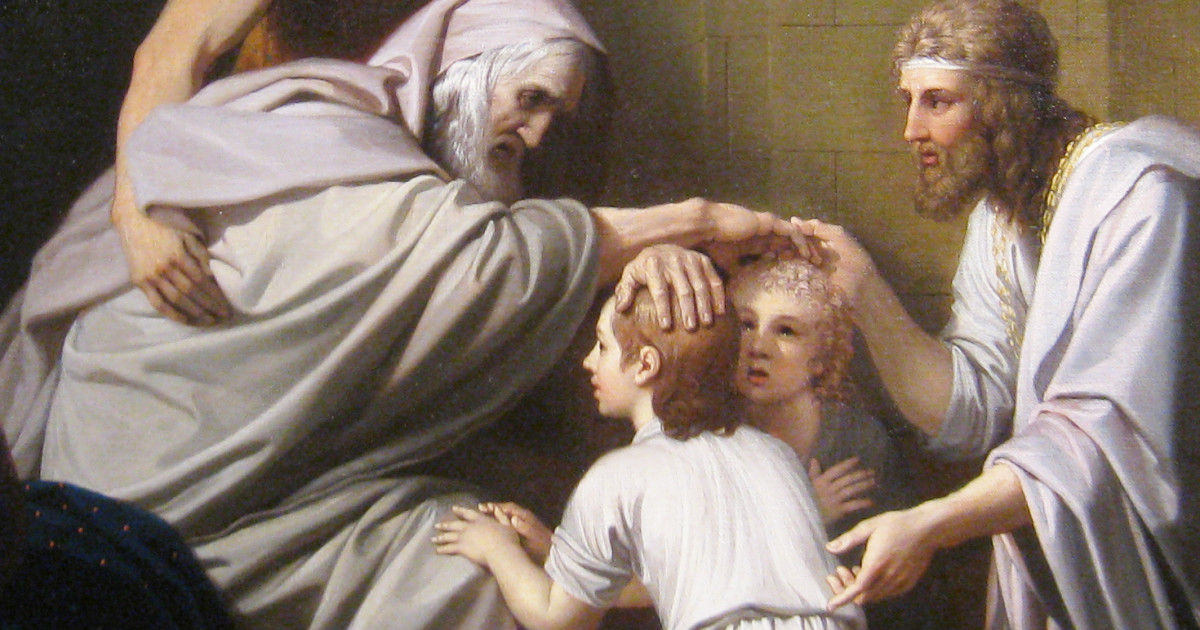When davening the Shema, it is important to reflect that you are not addressing God. Hear O, Israel, we say. This is not a conventional prayer from earth to heaven. It is a social, human moment, addressed to … whom? Israel.
The simple meaning of this phrase is that we exhort each other, reminding our fellow Jews to keep faith with our best monotheism. But a wonderful Talmudic tale knits this into a charming story. You’ll recall that the biblical patriarch Jacob was also known as Israel, a name he won when encountering a divine being and prevailing. The following tale imagines that when we say Shema, we address – not each other – but Jacob himself, the original Israel.
To really get the Talmud’s homily, you need one last piece of information: the Shema itself comes from Deuteronomy 6, where the phrase Shema Israel leads directly into the verse ve’ahavta, “and you shall love the Lord your God.” But, actually, we say something in between those two lines. We add a non-biblical phrase: ברוך שם כבוד מלכותו לעולם ועד, “Blessed is God’s glorious royal name eternally.” In ancient times, that phrase served like our contemporary amen, as the community’s affirmation to hearing something holy. It entered our recitation of Shema as the response to the first phrase.
However, the Talmud [Pesachim 56b] does something terrifically inventive with that response. The ancient sage Resh Lakish tells this tale:
Jacob was on his death bed, ready to give his children a vision of the future. “And Jacob called to his children and said: gather together and I will tell you what will befall you in the latter days [Genesis 49.1].” But right at that moment, Jacob’s mind clouded and he lost his vision of the God and of the future. Perhaps, he wondered, his children were unworthy of hearing the prophecy. Perhaps they will not keep the faith. But his children reassured him:
שמע ישראל, Hear O Israel, the Lord our God, the Lord is One. As God is One in your heart, so God is One in our hearts! We will follow your path.
To which Jacob gratefully, joyfully replied: ברוך שם כבוד מלכותו לעולם ועד, “Blessed is God’s glorious royal name eternally.” Thank God!
As you daven Shema, try to imagine yourself a participant in that little call and response. Try to imagine your ancestor Jacob – or any and all your ancestors along the historical chain from him to you – wondering whether you would remain a Jew. Then try to imagine yourself reassuring Jacob: Hear O Israel, ישראל סבא, Israel Sabba, ancient forebear, we are still walking your path with God. Then try to imagine your ancestors nodding their heads and smiling.





